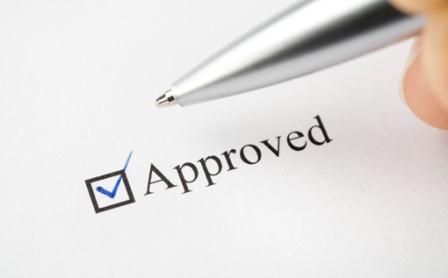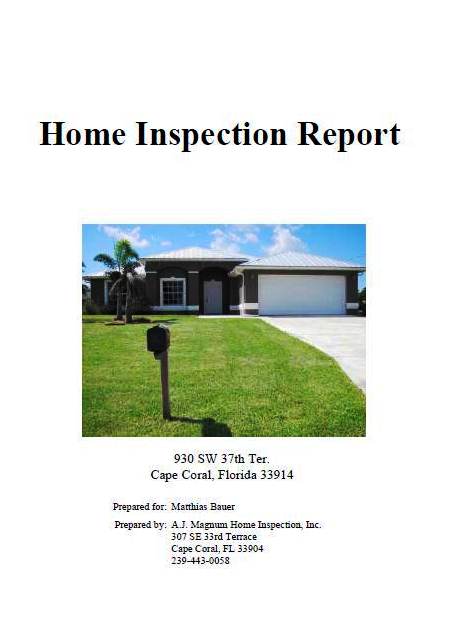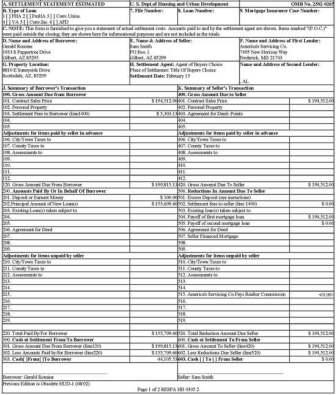The Process of Buying Real Estate in Florida

It is a good choice to get yourself aquainted with the different steps that lead you through the purchase of a property in Florida. First you should determine how you are going to pay for it.
Cash Purchase
In most cases, the seller is asking for a "proof of funds" to show that you are actually capable of paying the offered amount. Without this certification of your financial strength, the seller will not waste any time by taking their property off the market while not knowing whether you will be able to follow through with the purchase at all.
This proof of funds can be a simple account statement printed off the internet or can also be a bank confirmation about your available funds.
It is very important that you provide such a proof of funds before we start looking at your selected listings. This way we will be flexible and can act quickly once you have found the right property. Thus, providing proof of funds gives you more negotiating power as a strong buyer.
Financing Purchase
It is always a good decision to shop for the best mortgage loan when you finance a home purchase. Depending on how much money for a down payment and closing cost you have available there are different loan programs available that could suit you. Whether it is a construction-perm loan, a conventional loan, an FHA or VA loan - you should get in touch with a bank or a mortgage broker to find out what would be the best way for you to go.
 If you have done your mortgage application and sent in all necessary documents the bank is able to issue the so called "Pre-qualification" or "Preapproval". This preapproval is needed to submit a financing offer to a seller. With this document the seller can see that you have done the first step on the way to financing and that a bank has at least tentatively screened your financial situation, your income and expenses as well as your assets and debts. As mentioned before you should have this document in your pocket before you start looking for a home, condo or lot.
If you have done your mortgage application and sent in all necessary documents the bank is able to issue the so called "Pre-qualification" or "Preapproval". This preapproval is needed to submit a financing offer to a seller. With this document the seller can see that you have done the first step on the way to financing and that a bank has at least tentatively screened your financial situation, your income and expenses as well as your assets and debts. As mentioned before you should have this document in your pocket before you start looking for a home, condo or lot.
After the acceptance of the contract with the contingency of financing the bank will appraise the property, the home inspection will be done and during the course of the weeks thereafter the lender will do the detailled check of your financing application. It can still happen that the financing will fall through if the lender does not see enough security in the property or simply your financial situation might have changed or is not as it looked like at the beginning.
In case everything is alright and the bank will finance the purchase then the "preapproval" is going to be changed into a "loan commitment" which is the final removal of the contingency in the contract. If the buyer decides to not follow through with the purchase now, he is at risk losing his escrow deposit.
Selection of the property
If you work with me, you already have the best tool at your disposal: The "MLS Client Portal" helps you to look comfortably through the entire portfolio of properties available. After a search from afar in this database you then decide which one you would like to see. The choice of homes to visit must be followed by the actual showing shortly after as homes in Cape Coral for example are sold on average within 60 days of the listing hitting the market, sometimes it also can take only a few days.
 The Offer
The Offer
To buy a house or lot in Cape Coral we will prepare a written offer which we fill with your information and requested terms and conditions. The contracts are in most cases a standard FAR-BAR issued by the Florida Association of Realtors (FAR) and the Florida Association of Attorneys and Lawyers (BAR). All details such as purchase price, deposit, inspection period, date of transfer of ownership etc. are determined. With the offer possibly further documents will be sent along, such as the prequalification for the financing or a proof of funds for a cash purchase as well as appendices or disclosures of certain facts by the seller (Seller's Disclosure). Most of these disclosures are for the purpose of buyer protection. Also in the offer is the deadline for your response, which is usually 24-48 hours. During this time you can accept the offer, refuse or submit a counter offer.
Submitting the offer
The buyer's agent (Realtor) submits the offer to the seller's or listing agent. He in turn presents the document to the seller and explains the terms of the offer.
The Seller's response
The seller has several options: The acceptance of the offer without any change. The document automatically becomes the contract, which is then binding on both sides and will accompany us until the end of the transaction. The Seller can also reject the offer without a counteroffer. If the seller changes one or more terms in the offer we speak of a counteroffer. If this is submitted the buyer can now refuse, accept or counter. Often these negotiations are made verbally between the agents until a mutual agreement is put into writing.
The acceptance of the offer

As soon as the last party signs off on the offer/counteroffer and delivers it to the other party a legally binding contract is sealed. The effective date in the contract is the date that will be know as day zero when deadlines are being calculated, e.g. for the escrow deposit or the home inspection etc. A vacant land contract and a house contract are of course different in nature.
Especially the time periods to be taken into account are handled differently, i.e. Calendar days in one contract are business days in the other. That's why you need a Realtor who puts a lot of emphasis on accuracy so that no important deadlines pass and you thereby suffer a disadvantage. Your protection is my job! The contract is then immediately forwarded to the titel company which opens the file.
The Lender
If the property is being financed, the lender will also receive a copy of the contract. This will then have information such as the purchase price confirmed by an appraisal of an appraiser and also have a survey carried out.
The deposit
 The escrow deposit can be made in different ways according to how it is stated in the contract: either directly upon acceptance of the contract or within a period of a few days or even spread over 2 separate payments. Here you can take into account the time needed for funds to reach the escrow account as often money may need to be transferred from abroad. This deposit is transferred to the escrow account of the title company. The seller customarily chooses the title company and therefore pays all fees and title insurance. Upon receipt of the money the title company issues a confirmation which is sent to both parties. Usually, deposits between two and five percent are expected, unless the seller has requested this differently in the listing.
The escrow deposit can be made in different ways according to how it is stated in the contract: either directly upon acceptance of the contract or within a period of a few days or even spread over 2 separate payments. Here you can take into account the time needed for funds to reach the escrow account as often money may need to be transferred from abroad. This deposit is transferred to the escrow account of the title company. The seller customarily chooses the title company and therefore pays all fees and title insurance. Upon receipt of the money the title company issues a confirmation which is sent to both parties. Usually, deposits between two and five percent are expected, unless the seller has requested this differently in the listing.
Home or Land Inspection
Within the agreed Inspection Period or Feasibility Study Period, licensed Inspectors or Surveyors will now conduct inspections and surveys to determine if the property is suitable for the buyer.  The home inspection is carried out by a licensed professional who at the end draws up a written report on the current condition of the house. The inspector evaluates the condition of the roof, the structure of the building, the sanitary facilities and water supply, the appliances and much more. Water boiler, air conditioning, pool pump and heater, fridge, stove and dozens of other items are checked, even the proper drainage of the water. This report can sometimes comprise 40 or 50 pages.
The home inspection is carried out by a licensed professional who at the end draws up a written report on the current condition of the house. The inspector evaluates the condition of the roof, the structure of the building, the sanitary facilities and water supply, the appliances and much more. Water boiler, air conditioning, pool pump and heater, fridge, stove and dozens of other items are checked, even the proper drainage of the water. This report can sometimes comprise 40 or 50 pages.
It is important to see if the house is in the expected condition. This way you are ensured that you do not incur high repair costs directly after your purchase. There are exceptions to these purchase contracts when it comes to a foreclosure, a bank-owned property ("REO") or a short sale where the seller is generally not required to make repairs. Furthermore, inspections can be carried out to check for the presence of mold, termites, lead-based paint in homes constructed before 1978 or Chinese/Defective drywall.
To inspect a vacant lot you hire a surveyor to determine the size of the building site and its elevation. With such a survey a home builder can calculate the approximate cost of adding fill dirt to build on the necessary height. In some areas, it may even be advisable to drill holes to better assess the condition of the soil. If you can not attend this inspection in person, we will gladly accompany the inspector and forward his information of the condition to you.
Should technical or structural defects be discovered there are two options: either the seller agrees to remedy these deficiencies until the property is transferred or agrees to a price reduction. In most cases we can negotiate one of these options, however you must know that with the AS-IS contract (purchased as seen) the seller is under no obligation to repair anything or reduce the price. If this happens and the damages are major the buyer can only cancel the contract within the inspection period and have the deposit returned. The seller puts the property back on the market.
Appraisal
In case of financing the bank will send an appraiser to the property who will estimate the value in the current condition. If this appraisal confirms the purchase price then a provisional financing commitment is given (of course, further details will have to be checked by the bank).
The title search and clarification of ownership
When all this is done the title company will start their work. As the seller mostly chooses the title company he will cover not only the entire cost of the transaction (in a financing you pay natural your part) but also the issuance of the title insurance. The title company immediately checks public records and other systems at their disposal to find out whether any legal claims against the property are existing and recorded. They also clarify the amount of a potential mortgage payoff and whether there are any open "assessments", e.g. city utility assessments. Then title commitment is issued. This protects the buyer against any legal claims of third parties. The actual insurer stands in the background and controls the operation and handling of the transaction through the title company - they are called "underwriter". Now all necessary documents for the transfer of ownership are prepared.
The loan commitment
If all the borrower's data has been positively audited and checked by the bank, the (conditional) loan commitment is issued which removes the financing contingency from the contract.
 The Settlement Statement (HUD)
The Settlement Statement (HUD)
In time the title company will prepare the Settlement Statement. Herein all positions that will have to be paid and will be credited to either buyer or seller will be shown. It will reflect the escrow deposit, the commissions, prorated taxes and assessments as well as invoices from third parties like the home inspector and all charges from the lender. For the tax proration you have to bear in mind that taxes will be paid in arrears, whereas stormwater fee, fire assessment or solid waste fees as well as homeowner insurance has to paid in advance. The stated amount at the bottom shows the net proceeds to the seller and the total amount payable by the buyer. This remaining amount has to be transferred to the escrow account by the buyer until the day of closing. Also until that day either the documents have to be delivered from either party or appointments have been made to sign all documents and get them notarized in front of the title company. If you are abroad the documents must be signed at your current whereabouts at either a notary public, attorney or the American embassy/consulate and sent back as originals by courier to the title company.
The final Walkthrough
At the day of closing there will be a final walkthrough at the property. Either the Realtor does that on behalf of the buyer or it is done together. It serves to make sure that the property is still in the same condition as it was at the time of showing. This way you can ensure that all household items, furniture or appliances are still there as you might have stated in the contract. At this time the seller has removed all his personal items or anything that is not included in the contract as well as garbage from the property.
 The Closing and Transfer of Ownership
The Closing and Transfer of Ownership
Up to this day the buyer can transfer the remaining funds to the escrow account. If this happens by 5 p.m. EST everything is fine, even if the closing due to the late arrival of the funds may be done the next day, especially when financing is involved and the bank's funds are still missing. At the closing the buyer or the buyer's agent will be handed over the keys and garage door openers. It is highly recommendable to change the locks right after.
The seller will terminate water and electricity service for the day of closing and the buyer again has to turn in the new application for connection. The Transfer of Ownership is being done by means of a deed. This deed will be recorded at the Division of Public Records and is publicly viewable at www.leepa.org. Yearly recurring invoices like the property tax or city information concerning the property will be sent to the address recorded.





